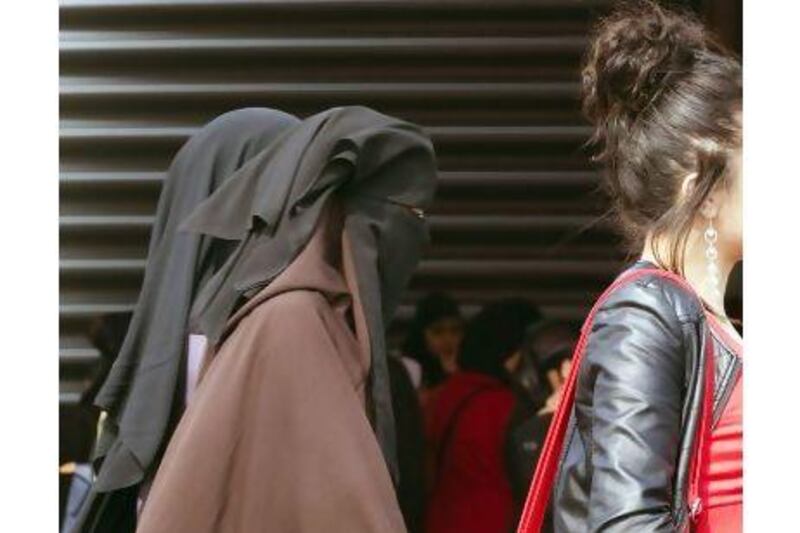Misreading French fashion faux pas
On your editorial page, your editors liken the banning of trousers in France to the banning of the niqab in that country (Archaic dress codes, February 7).
They are hardly the same thing. That correlation is the only thing that is très absurd.
Maggie Hannan, Abu Dhabi
Quick-fix surgery should be a last resort for obese
Bariatric surgery for treating obesity has been in the news for some time now, but the recent news of teenagers opting for this treatment is appalling (Men in the UAE in a rush to have Operation Six-pack, December 16). To treat the symptoms and not the cause is completely irresponsible.
New (or not so new) thinking shows that one of the largest causes of obesity is the body's continuous exposure to insulin, which, while being involved in many other functions, causes the body to store carbohydrates, manifesting as body fat initially and, ultimately as metabolic syndrome (which includes obesity, bad lipid profile and insulin resistance). Carbohydrates raise insulin levels and are ubiquitous in sweets, sodas, fruit juices, cakes, pastries, and pastas and breads.
The bottom line is that the standard, official diet plans for obese people are not working in countries like the US, where obesity continues to rise in spite of this guidance.
What we need to do is to start shopping in the fresh market section of the supermarket, avoid prepared foods and sauces, and cook our own foods with healthy saturated fats and proteins and fresh vegetables with only a modest intake of carbohydrates.
Once carbohydrate consumption is reduced the body begins to decrease its dependence on carbohydrates, resulting in weight loss in a healthy, sustainable manner.
This, without the need to resort to juvenile gastric bypass surgery.
Anne Gregg, Abu Dhabi
Israeli-Palestinian trust can improve
Fewer Israeli soldiers charged with crimes against Palestinians (February 6) was interesting to read. This could create confidence among Palestinians.
Decades of conflict between these two neighbouring states should come to an end. Israel can play a role in Middle East stability. I hope the coming days will be better for people on both sides of the border.
K Ragavan, India
Film can change Arab stereotypes
Your feature on the Emirati entrepreneur working to change the world's perception of Arab traditions and heritage is extremely important (UAE entrepreneur goes to Hollywood, February 5).
Sometimes impressions get so muddled up in negatives that they become stereotypes. Hats off to him and best wishes.
Zahra Khan, Abu Dhabi
Use technology to make roads safer
In the UAE there are compulsory speed limits, compulsory maintenance requirements and compulsory load limits. But human greed being what it is, these laws will be broken by those who simply seek to earn more money.
The 24 unnecessary deaths in Al Ain (Al Ain crash victims recount horror of the collision, February 6) show all too painfully that the time has come to ensure that load, speed and maintenance rules are followed by electronic means. Technology exists to ensure all violations of these rules are recorded automatically; maybe it is time to roll this out nationally for trucks and buses.
Peter Nixon, Abu Dhabi
Tunisians need answers, and fast
The region and the world clearly wants to know who ordered the assassination of Chokri Belaid, and who paid those who carried out the killing this week, as you write in your editorial Assassination is an attack on all of Tunisia (February 6). But Tunisians need answers more than the rest of us. Those responsible must be dealt with promptly.
Ursala Riches, UK
Another financial crisis on horizon?
If some of the suggestions in your article, Mortgage limits for expats and Emiratis recommended by UAE banking bosses, are carried out, this will again lead to a tight situation and a financial crisis both for borrowers and lenders.
The basic criteria for any loan and all loans put together should be that the repayments should not exceed 50 per cent of known sources of income of the individual.
Unless this approach is adhered to it is possible that the property segment of the economy will face another crisis.
KB Vijayakumar, Dubai





